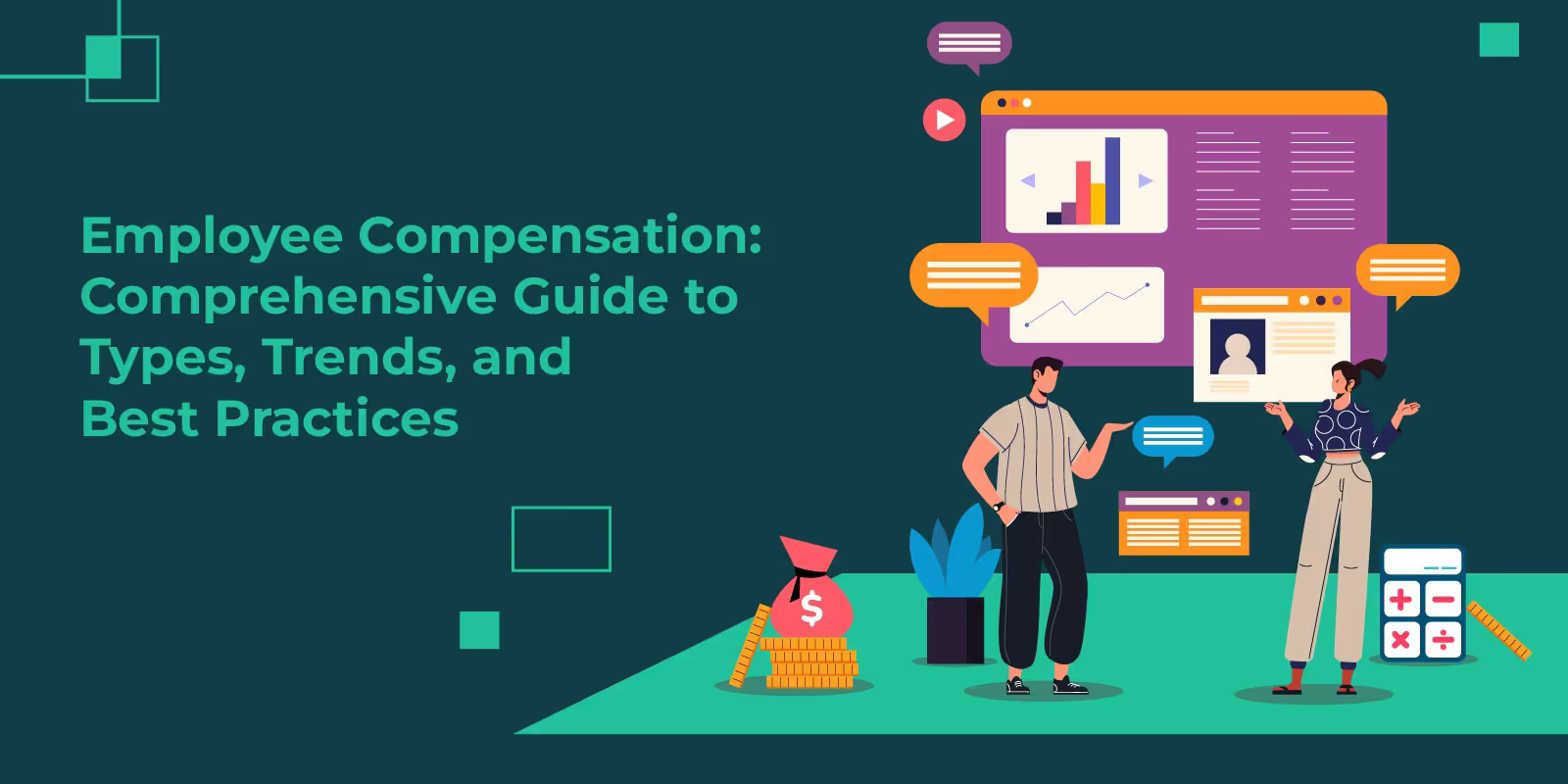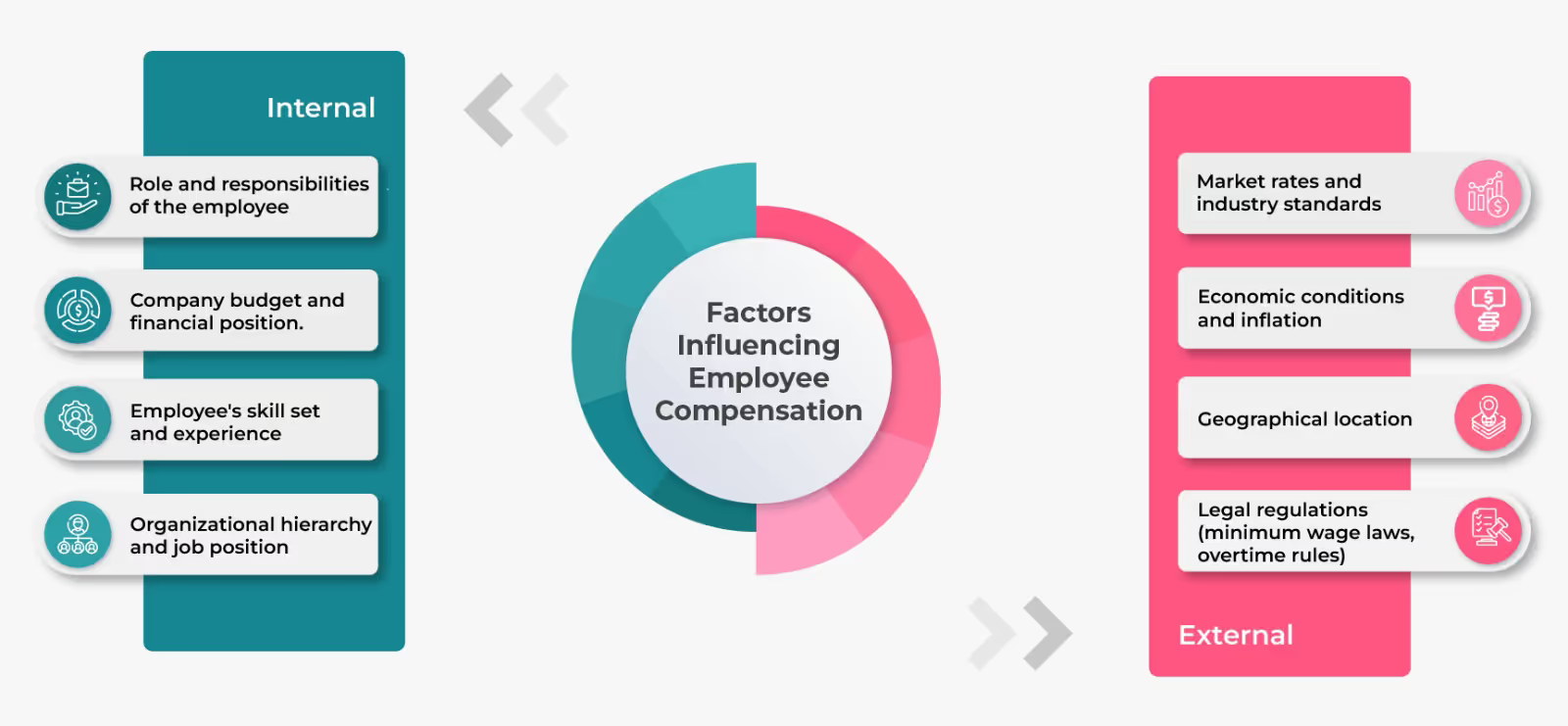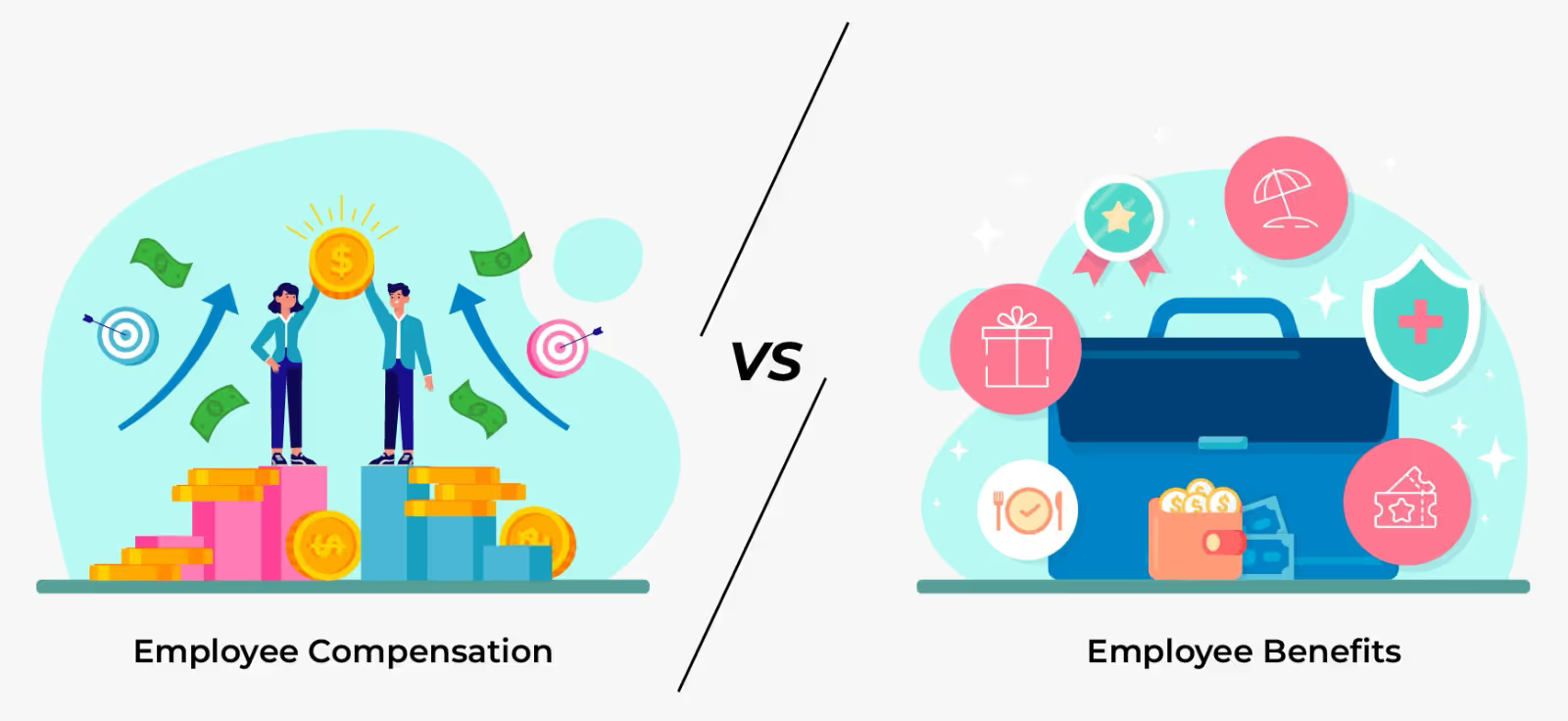
Blog
Employee Compensation: Key Types, Trends, and Best Practices
October 9, 2024


Key Insights
Employee Compensation: Comprehensive Guide to Types, Trends, and Best Practices
Most people think employees stick around because of the paycheck. But guess what? That’s only half the story.
If you think giving employees just a pile of cash will make them stay forever, spoiler alert: they won’t. Why? Because compensation is much more than money; it’s making them feel appreciated and rewarded for the hard work they put in.
Want to know how to build a compensation plan that does more than just keep people paid? One that actually makes them want to stay? Keep reading!
Why Does Compensation Matter So Much?
Compensation is the anchor of the employer-employee relationship, and designing a smart compensation plan is what launches your ability to attract, retain, and reel in top talent.
Employee compensation is a huge part of what gets employees through the door and keeps them there. It’s no wonder that companies with competitive compensation strategies have a 22% increase in employee retention as reported by PayScale.
The Importance of Compensation in the Workplace
Sure, furniture, equipment, and a stylish interior are the icing on the cake in a workplace, but let’s not forget about the key player: the employee compensation strategy. Nail that, and your office will not only look good, but it’ll feel good too!
So, while the exterior makes for a nice backdrop, it’s the compensation plan that truly sets the tone for your entire workplace.
💡Bonus Read: 15 Sales Compensation Benchmarks to Use
Types of Employee Compensation

Direct Compensation
- Salary and Wages
This is the most straightforward form of compensation. Salaried employees have a fixed annual amount, while hourly employees are paid for each hour worked. The key difference? Salaried employees often don’t receive overtime, while hourly workers do.
- Bonuses and Incentives
Performance bonuses and sales incentives can boost employee motivation. These are financial rewards given when employees meet or exceed specific targets, promoting a performance-driven culture.
- Overtime Pay
Overtime is compensation for hours worked beyond the regular workweek. It’s crucial for keeping hourly workers motivated during busy times without causing burnout.

Indirect Compensation
- Benefits
Benefits such as health insurance and retirement plans are critical in today's job market.
- Paid Time Off (PTO)
Vacation days, sick leave, and personal days are essential components of compensation, allowing employees to recharge without losing income.
- Fringe Benefits
When it comes to what gets people excited about applying for a job, survey respondents had some interesting insights. 48% of U.S. workers and job seekers mentioned that eye-catching benefits and perks, like gym memberships and paid time off, are major motivators for them!
Non-monetary Compensation
- Recognition Programs
A simple "Employee of the Month" recognition can go a long way. Public acknowledgment of an employee’s contributions can be just as powerful as a financial reward.
- Career Development Opportunities
Offering employees opportunities to grow, such as leadership programs or paid courses, can enhance job satisfaction and long-term loyalty.
Factors Influencing Employee Compensation

When it comes to employee compensation, it's not as simple as just picking a number. A wide range of factors, both internal and external, play a role in shaping it.
Internal Factors
- Company Budget and Financial Position:
A company’s ability to offer competitive pay is directly linked to its financial health. Profitable companies can afford more generous compensation packages, while startups might need to be creative with their offerings.
- Role and Responsibilities:
Compensation is often tied to the complexity and importance of the employee's role. Higher-level positions with more responsibility naturally command higher pay.
- Employee’s Skill Set and Experience:
Employees with specialized skills or more experience tend to receive higher compensation. This is particularly true in industries like tech, where experienced software engineers are in high demand.
- Organizational Hierarchy:
Compensation often increases as employees move up the ranks. Entry-level roles offer lower pay compared to middle management or executive positions.
External Factors
- Market Rates and Industry Standards:
To remain competitive, companies must offer salaries that match or exceed industry standards. A marketing manager in New York City, for example, will likely earn more than one in a smaller town due to differences in the cost of living and market demand.
- Economic Conditions and Inflation:
During times of economic growth, companies tend to increase compensation to attract top talent. However, during a downturn, salary freezes or reductions may become necessary.
- Geographical Location:
Compensation varies by region, with employees in major cities typically earning more than those in rural areas due to the higher cost of living.
- Legal Regulations:
Minimum wage laws, overtime rules, and other labor regulations impact compensation strategies. Companies must ensure they comply with local, state, and federal laws to avoid penalties.
Employee Compensation vs. Employee Benefits

When it comes to rewards in the workplace, compensation and benefits often get lumped together, but they’re not the same thing.
What’s Trending In Employee Compensation?
Employee compensation is experiencing a major makeover,ompanies are rethinking how they reward their employees. What’s catching everyone’s attention right now?

Companies are increasingly rewarding high performers by tying bonuses and salary increases to specific performance metrics. This shift creates a true pay-for-performance culture that motivates employees to excel.
Performance-based pay can boost employee output by up to 44% (Source: McKinsey & Company).
- Compensation for Remote Workers
With the rise of remote work, some companies are adjusting pay based on local cost of living, while others maintain standard salaries regardless of an employee's location. This has sparked an interesting debate about fairness and equity in compensation.
- Equity Compensation
Stock options and restricted stock units (RSUs) are gaining popularity, especially in startups. These forms of compensation give employees a stake in the company’s future, transforming them into partners in the success story.
- Flexible Benefits Packages
The importance of offering flexible benefits packages is on the rise. Employees appreciate the ability to customize their benefits according to their individual needs, whether it's health insurance, childcare support, or additional vacation days. This flexibility can significantly enhance job satisfaction and retention.
The Role of Technology in Compensation Management
Gone are the days of messy spreadsheets when it comes to compensation!
These days, we have some pretty slick Incentive Compensation Management Tools like Kenenct that can do all the heavy lifting for us. Imagine having a system that automates pay calculations, keeps you compliant with regulations, and makes sure payouts happen right on time and a lot more. Pretty neat, right? Investing in solid compensation management software not only saves you a ton of time but also helps you stay competitive in the game.
Compensation Challenges
In compensation, you twist and turn, hoping to find the right combination that keeps your employees happy, engaged, and motivate, all while staying within budget. But just when you think you’ve got it figured out, a new challenge pops up, leaving you tossing and turning at night. So, what exactly are these compensation conundrums that keep employers wide awake?
- Pay Equity: Gender and racial pay gaps are still a reality. Companies need to audit regularly and fix discrepancies to ensure fairness.
- Balancing Budget and Market Rates: It’s a tightrope. Pay too little, and you lose talent. Pay too much, and it’s hard to sustain.
- Managing Multigenerational Expectations: Baby Boomers value job security, Gen X wants work-life balance, and Millennials prioritize purpose. Knowing how to tailor compensation for each group is crucial.
Conclusion
Employee compensation is a promise, a commitment between you and your employees to provide fair and competitive pay, along with benefits that meet their needs. By fulfilling this promise, you cultivate trust, loyalty, and a positive work environment.
Remember, compensation planning isn't a one-time event. Your compensation package requires regular review and updates. Keeping it fresh and relevant is essential to maintaining employee satisfaction and motivation.
A surprising fact: 80% of U.S. businesses update their sales compensation plans every two years or less. This shows just how important it is to keep your compensation strategies current.
ReKennect : Stay ahead of the curve!
Subscribe to our bi-weekly newsletter packed with latest trends and insights on incentives.
Thank you! Your submission has been received!
Oops! Something went wrong while submitting the form.
Your data is in safe hands. Check out our Privacy policy for more info











